 |
Ballet Makes Your Future Fly 芭蕾放飞你的未来 Official Partner Training Bureau of General Administration of Sport of China |
 
|
The Royal Academy of Dance (RAD) is an international dance education and training organization, and examination board that specialises in Ballet.The RAD was established in London, England in 1920 as the Association of Operatic Dancing of Great Britain, and received its Royal Charter in 1936. HM Queen Elizabeth II is currently the patron of the RAD and Dame Antoinette Sibley has served as President since 1991.
The RAD was created with the objective to improve the standard of ballet training in the UK and, in pursuit of that goal, a new teaching method and dance technique was devised for the Academy by a group of eminent European dancers. The RAD is one of the largest dance organisations in the world with over 13,000 members in more than 80 countries, including over 7000 who hold Registered Teacher Status. There are currently over 1,000 students in full-time or part-time RAD teacher training programmes and each year the examinations syllabi are taught to over 250,000 students.
The RAD's Examinations Board is accredited by Ofqual and is validated by the Council for Dance Education and Training. The RAD also works in partnership with the International Dance Teachers' Association. The RAD consists of both a registered charity and a commercial division known as Royal Academy of Dance Enterprises.
Graded Examination Syllabus
Vocational Graded Examination Syllabus
Grades 1-8 and the first five levels of the Vocational Grades are accredited by the Office of Qualifications and Examinations Regulation (Ofqual) in England, the Department for Children, Education, Lifelong Learning and Skills (DCELLS) in Wales and the Council for the Curriculum, Examinations & Assessment (CCEA) in Northern Ireland. These organisations are the Government approved qualifications regulators for their respective countries. Candidates who successfully pass an RAD examination are awarded credit on the Qualifications and Credit Framework.
In 2009, the RAD launched a new syllabus at Pre-Primary and Primary level in dance. These two new grades replace the existing Pre-Primary and Primary grades in ballet. The Academy is also in the process of piloting a new syllabus for Grades 1, 2 and 3.
Classical Ballet is one of the most widespread dance forms in the world. Originating in the Italian royal courts of the Renaissance period, over hundreds of years it has been developed into a highly technical dance form. Ballet is the foundation of the RAD's work and is the most important part of the Graded Syllabi.
Free Movement is the term applied to movement from dance styles such as natural movement, contemporary and Classical Greek dance. Free movement does not have to include codified dance vocabulary and is usually an improvisation based on the students interpretation of a piece of music or stimulus.
Character Dance is an integral part of classical ballet repertoire. It is the stylised representation of a traditional folk dance, normally from a European country and uses movements and music which have been adapted for the theatre. The RAD syllabus uses character dances based on Hungarian, Russian and Polish folk dance.
Unlike the Graded Examination Syllabus, the vocational grades have to be studied in sequence and the student must successfully pass an examination at each level before progressing onto the next. All vocational examinations are organised by RAD headquarters and instead of being held at a dance teachers own venue, they are held in major cities worldwide. In this situation, the session organiser is responsible for timetabling the examinations, and it is normal for students to dance alongside the students of other dance schools in the examination room. As with the graded syllabus, successful candidates receive a certificate personalised with their name and the level passed. They also receive a report, however for this series of examinations, there is a different marking system and assessment criteria.
Students studying the vocational syllabus are expected to achieve a high level of technical and artistic ability in ballet and it can take a great deal of time and commitment to reach the standard required to pass these examinations. Normally, a student will begin studying the Vocational Graded Syllabus after completing Grade 5 in the Graded Examination Syllabus, however some students will continue to study the graded syllabus at the same time. The Intermediate Foundation and Advanced Foundation examinations are the only optional exams in this series of awards. They are devised for students who the teacher feels may need more preparation before studying at the higher level, however they are assessed in the same way, certificates awarded in the same way and credits awarded on the National Qualifications Framework.
Official RAD Site | Make Ballet Hair Bun | Career
English Inquiry, Please Call: 1511-020-0236
Address:Xin Hua International Plaza C306, No.89 Da Yang Fang Road, shi li he, Chaoyang Dist. Beijing 100122